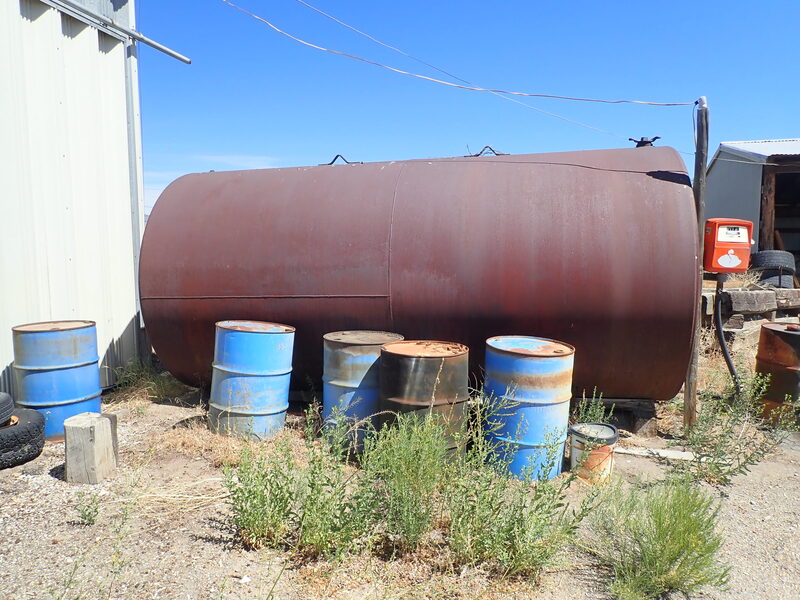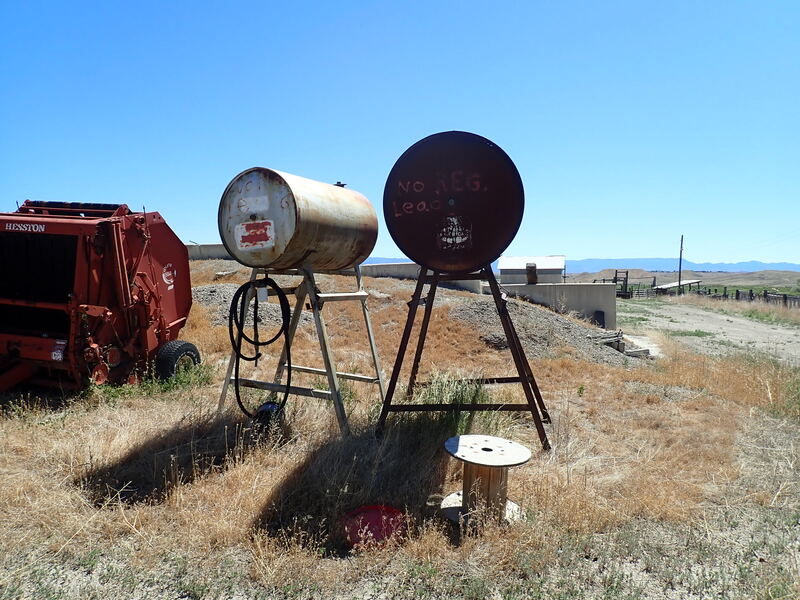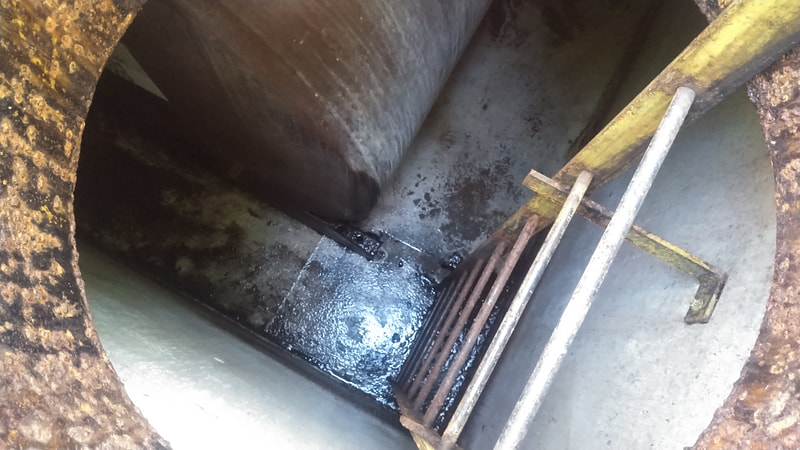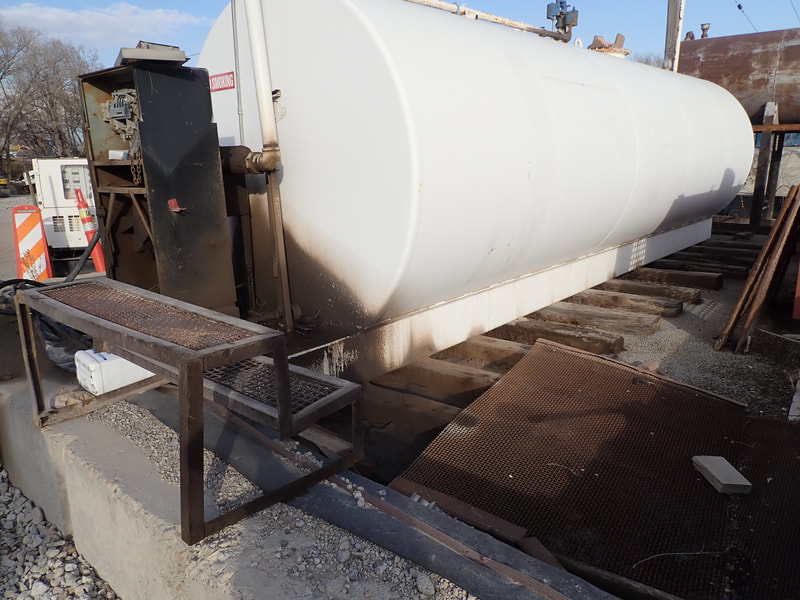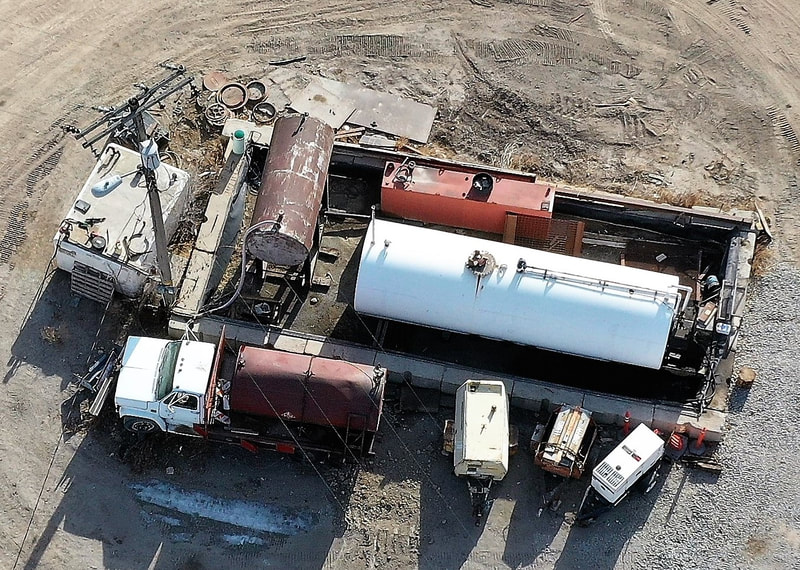JUNE 30, 2023: Utah Deadline: Certificate of Compliance of Above Ground Petroleum Storage Tanks (APST)
Aboveground Petroleum Storage Tank Financial Responsibility and Certificate of Compliance Requirements - Due to legislation passed in the 2021 session, DERR began regulating specific types of Aboveground Petroleum Storage Tanks (APSTs) on May 5, 2021. By statute (19-6-407(2)), owners of regulated APSTs must notify the Director of their location via the “Utah Notification for Aboveground Petroleum Storage Tanks” form. Upon notification, a processing fee of $250 shall be assessed to the owner. By June 30, 2023, APST owners must demonstrate financial responsibility and obtain a Certificate of Compliance. Regulated APSTs that do not register and obtain a Certificate of Compliance by June 30, 2023, will also be subject to enforcement actions, penalties, and delivery prohibition.
To qualify for a certificate of compliance the AST owner/operator must complete and submit the following (R311-206-3):
*Note – Overfill, cathodic protection, and line leak detector tests will be required by owners participating in the Environmental Assurance Program starting 7/1/2026.
Please visit – Rules & Regulations: Petroleum Storage Tanks & Leaking Storage Tanks for rule references and details.
deq.utah.gov/environmental-response-and-remediation/aboveground-petroleum-storage-tanks-apst
Utah Aboveground Petroleum Storage Tanks
To clarify, Utah DEQ uses the phrase "Aboveground Petroleum Storage Tank" and the acronym "APST". Keep in mind you may run into the acronyms APST or AST. AST has been the common terminology until now.
Aboveground Petroleum Storage Tanks (APST)
Due to legislation passed in the 2021 session, the Utah Department of Environmental Quality (DEQ), Division of Environmental Response and Remediation (DERR) began regulating Aboveground Petroleum Storage Tanks (APSTs) on May 5, 2021.
What is a regulated APST?
A petroleum storage tank greater than 500 gallons and meets one or both of the following:
APSTs not regulated include:
documents.deq.utah.gov/environmental-response-and-remediation/ust-lust/branch/DERR-2021-020824.pdf
Upon completion, please sign and date the form and return it to the DERR.
Either email it to: TankCompliance@utah.gov
or mail it to:
Division of Environmental Response and Remediation
Underground Storage Tank Section
P.O. Box 14484
Salt Lake City, Utah 84114-4840
Also, beginning May 5, 2021, all APSTs that are now regulated by DERR will be required to submit a closure plan for any closures, upgrades, line replacement, etc. Releases from regulated APSTs will now be regulated by the DERR and the Underground Storage Tank reporting requirements and cleanup standards will apply.
Per Utah Code 19-6-407(b), a processing fee as established under Section 63J-1-504 will be assessed to owners of a regulated APST(s). If you have questions please contact us at (801) 536-4100.
Also, if your AST contains a listed hazardous material or hazardous wastes, it will be regulated by a different, more severe set of regulations. Note that if it contains hazardous material or hazardous waste it is no longer an APST (petroleum) but an AST.
Generally speaking, if you have leaking APSTs or LAPST (or LAST), we can help you get those cleaned up cost effectively.
Please give us a call if you have any questions about the new regulations, whether your tanks might be exempt or if you have experienced a release. We have innovative technologies to deal with releases.
(801) 361-9296
hess.remedy@gmail.com
Aboveground Petroleum Storage Tank Financial Responsibility and Certificate of Compliance Requirements - Due to legislation passed in the 2021 session, DERR began regulating specific types of Aboveground Petroleum Storage Tanks (APSTs) on May 5, 2021. By statute (19-6-407(2)), owners of regulated APSTs must notify the Director of their location via the “Utah Notification for Aboveground Petroleum Storage Tanks” form. Upon notification, a processing fee of $250 shall be assessed to the owner. By June 30, 2023, APST owners must demonstrate financial responsibility and obtain a Certificate of Compliance. Regulated APSTs that do not register and obtain a Certificate of Compliance by June 30, 2023, will also be subject to enforcement actions, penalties, and delivery prohibition.
To qualify for a certificate of compliance the AST owner/operator must complete and submit the following (R311-206-3):
- Payment of annual registration fee ($110 per tank or $220 per tank if not participating in the Environmental Assurance Program (EAP))
- Payment of annual PST fund fee if participating in the EAP ($150 per tank, or $450 per tank if you don’t submit annual throughput or if your annual throughput is less than 70,000 gallons);
- Certificate of Compliance Application;
- Previous Pollution Incident form;
- Financial Responsibility Declaration
- Tank Tightness Test(s) performed in the last six months;
- Refer to the Steel Tank Institute (STI)R912 Reference Document for testing procedures.
- Line Tightness Test(s) performed in the last six months;
- Spill Bucket Test(s) performed in the last six months;
- As-built drawing or site plat;
*Note – Overfill, cathodic protection, and line leak detector tests will be required by owners participating in the Environmental Assurance Program starting 7/1/2026.
Please visit – Rules & Regulations: Petroleum Storage Tanks & Leaking Storage Tanks for rule references and details.
deq.utah.gov/environmental-response-and-remediation/aboveground-petroleum-storage-tanks-apst
Utah Aboveground Petroleum Storage Tanks
To clarify, Utah DEQ uses the phrase "Aboveground Petroleum Storage Tank" and the acronym "APST". Keep in mind you may run into the acronyms APST or AST. AST has been the common terminology until now.
Aboveground Petroleum Storage Tanks (APST)
Due to legislation passed in the 2021 session, the Utah Department of Environmental Quality (DEQ), Division of Environmental Response and Remediation (DERR) began regulating Aboveground Petroleum Storage Tanks (APSTs) on May 5, 2021.
What is a regulated APST?
A petroleum storage tank greater than 500 gallons and meets one or both of the following:
- If the APST rests on soil or gravel
- If any portion of the piping is underground
APSTs not regulated include:
- Less than 501 gallons
- Commercial airport for fueling
- Used in farming or agriculture
- Petroleum refiner (SIC Code 2911)
- Petroleum bulk stations and terminals (SIC Code 5171)
- Related to oil or gas production and gathering operations
- Used for heating oil on premises
documents.deq.utah.gov/environmental-response-and-remediation/ust-lust/branch/DERR-2021-020824.pdf
Upon completion, please sign and date the form and return it to the DERR.
Either email it to: TankCompliance@utah.gov
or mail it to:
Division of Environmental Response and Remediation
Underground Storage Tank Section
P.O. Box 14484
Salt Lake City, Utah 84114-4840
Also, beginning May 5, 2021, all APSTs that are now regulated by DERR will be required to submit a closure plan for any closures, upgrades, line replacement, etc. Releases from regulated APSTs will now be regulated by the DERR and the Underground Storage Tank reporting requirements and cleanup standards will apply.
Per Utah Code 19-6-407(b), a processing fee as established under Section 63J-1-504 will be assessed to owners of a regulated APST(s). If you have questions please contact us at (801) 536-4100.
Also, if your AST contains a listed hazardous material or hazardous wastes, it will be regulated by a different, more severe set of regulations. Note that if it contains hazardous material or hazardous waste it is no longer an APST (petroleum) but an AST.
Generally speaking, if you have leaking APSTs or LAPST (or LAST), we can help you get those cleaned up cost effectively.
Please give us a call if you have any questions about the new regulations, whether your tanks might be exempt or if you have experienced a release. We have innovative technologies to deal with releases.
(801) 361-9296
hess.remedy@gmail.com
| derr-2021-015249_ast_final_rule.pdf |
